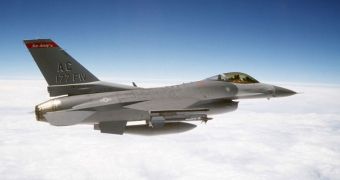Comparing the dimensions of an intercontinental airliner against those of a small bird may not yield results that will back up the conclusions that several commissions investigating plane crashes came to, namely that stray birds or flocks managed to destroy propellers and cause significant damage to the engines, forcing the plane down. Nevertheless, it's as true as anything can be, experts from the Bird Strike Committee USA, which have handled several such cases over the years, say.
The BSC cautions people and airlines not to think that, because of their relative small sizes, birds such as geese, raptors, or gulls cannot bring down even the most sophisticated jets. If several of these large birds end up being sucked into the engine of a plane, their body parts become so tangled inside that they force some of the fan blades of the engine to move and become loose. In turn, these blades hit others, and a cascade effect can ensue. If it spreads sufficiently enough, it can prompt the failure of the entire engine.
And large flocks have the bad habit of flying in a spread-type formation, which means that they can affect more than one engine at the same time. “Obviously, geese or another large bird would be much more hazardous than a little black bird. The speed at which the two are moving causes the bird to get ingested into the engine. And the engine is very delicate to withstanding a major impact,” Purdue University associate professor of aviation technology, Dale Oderman, said in an interview to LiveScience.
“The initial stages of a jet engine are made up of a lot of compressor blades. Those aren't very big and they can be very easily damaged. Even if one of those things breaks off, then the one blade will go through the rest of the engine and it's like shrapnel to the engine,” he added.
According to estimates, bird incidents have claimed the lives of more than 200 people since 1988, and also caused $600 million in damages each year. Many airports take measures to ensure that birds are kept away. Some don't plant any trees around the airstrips, while others employ sonic defenses, sounds that only birds respond to, and which keep them at bay. However, once past the airport limits, the plane is on its own, and situations can arise at any moment.

 14 DAY TRIAL //
14 DAY TRIAL //